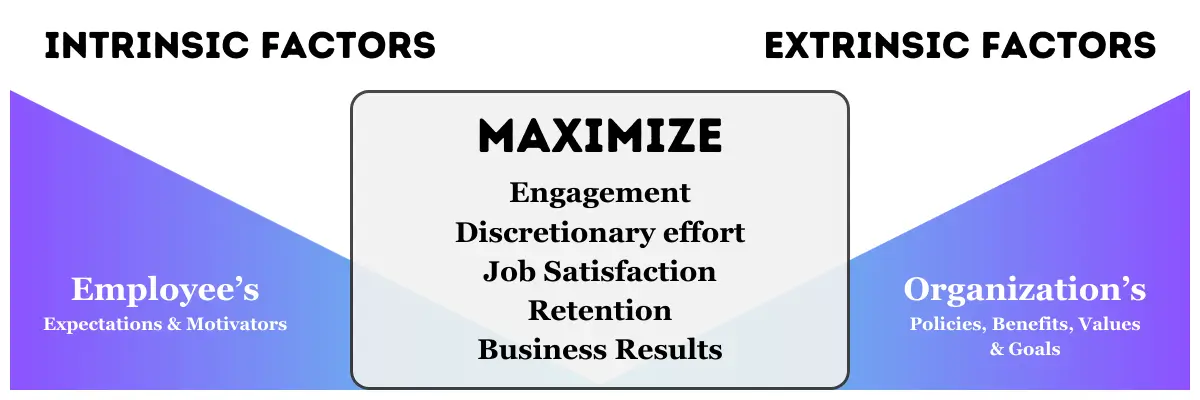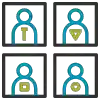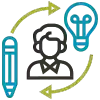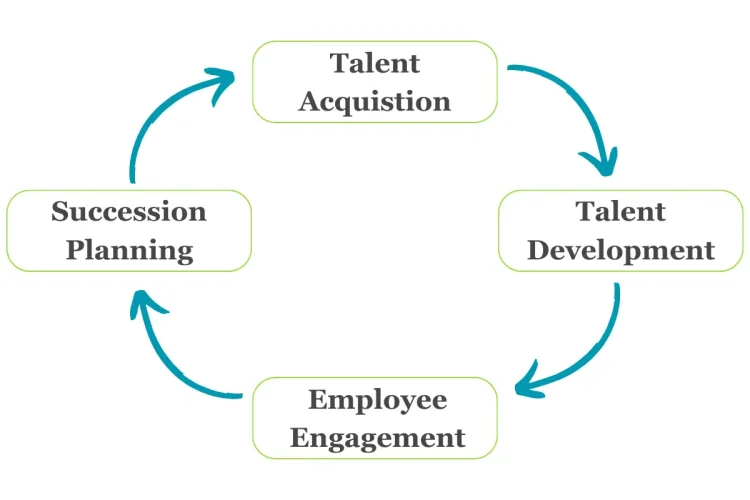Prepare For the 2025 Harrison Assessment
- Overview
- Curriculum
- Assessment Tools
- Reviews
Securing a job has never been easy, recruiters have the responsibility of selecting the “right” candidates while the candidates have the responsibility of highlighting the “right” personality traits and competencies. To identify and hire people who will not only succeed in their job role but also would be the ideal fit companies use talent management systems, such as Harrison Assessments as part of their recruitment process.
So if you have been invited to take a Harrison Assessment test but are not sure where to begin or how to proceed, you are on the right page. Let’s begin by exploring the basics of Harrison assessments.
What is Harrison Assessment?
Harrison assessment is a psychometric testing tool that provides a wide range of tests designed to evaluate individuals’ suitability for specific roles by assessing their enthusiasm and engagement levels while identifying areas for growth. It streamlines talent acquisition, career progression, and succession planning processes.
Thousands of organizations globally, ranging from large corporations to small businesses, have found value in Harrison’s job-specific and cost-effective approach to talent management, leading to improved performance, stronger teamwork, and a dependable talent pool.
Harrison Assessment tools provide insights into a candidate’s:
To counter the assessment one would want to make sure that they approach the test with confidence and information as much as possible. One way to do this is to gain familiarity with the intricacies of the test.
At PrepTerminal our team of psychometric test experts has put together a comprehensive preparatory course so you can practice on Harrison Assessment-specific material and increase your test-taking confidence.
What sets the Harrison Assessment apart from other behavioral assessments?
The Harrison Assessment stands out in three key ways:
Tailored Assessment: Harrison provides job-specific behavioral and personality testing, accurately forecasting success, retention, and engagement. Their SmartQuestionnaire evaluates 175 talent factors within just 25 minutes, comparing an individual’s behavior to job-specific requirements for optimal performance.
Reciprocal Evaluation: Harrison Assessment adopts a two-way evaluation approach, considering both the employer’s and employee’s needs, thus predicting engagement and retention more effectively. This contrasts with traditional one-way assessments that solely focus on the employer’s requirements.

Paradox Technology: Harrison employs Paradox Technology to assess how employees navigate 12 pairs of paradoxical behaviors, crucial for job performance. For example, while self-confidence can be advantageous, without balancing consideration for others, it may lead to dogmatism. Paradox Technology identifies job-related strengths and over 40 potential derailers without employing negative questions.
The Theoretical Basis
Harrison Assessment is grounded in two main theories, namely Enjoyment Performance Theory and Paradox Theory. Let’s explore the two theories before talking about the assessment:
What is Enjoyment Performance Theory?
The Enjoyment Performance Theory emphasizes the link between enjoyment and performance, suggesting that the tasks we enjoy are more likely to be done frequently and lead to improvement, while tasks we dislike tend to be avoided, resulting in stagnation. Positive feedback reinforces our enthusiasm for enjoyable tasks, whereas dislike diminishes our interest over time.
Harrison Assessment utilizes this theory to match individuals with suitable job roles, enhancing their engagement and effectiveness.
What is Paradox Theory?
Paradox Theory, a fundamental aspect of the Harrison Assessment, explores the idea of paradoxes, which involve two statements that initially seem contradictory but are both true. Within this framework, paradoxical traits consist of two seemingly opposing characteristics that are interconnected. When one trait is lacking while the other is present, it can lead to challenges.
Dr. Harrison identified 12 sets of behavioral traits categorized as paradoxical pairs, where an excessive focus on one trait may weaken it, despite its apparent strength. Maintaining balance within each paradox is vital, as it offers employers valuable insights into candidates’ behaviors.
In line with these theories, Harrison Assessments concentrates on three primary domains to pinpoint the most suitable candidates for a position:
- Eligibility of the Candidate: Refers to the ability to perform tasks.
- Suitability of the Candidate: Refers to the primary behaviors associated with the job role.
- Cognitive Ability of the Candidate: Refers to the ability to solve problems within the job context
Our Harrison Assessment Course Modules

Harrison Assessment Prep Course
Last Updated: Apr 14, 2025
Course Content
-
 Introduction 1 StepBuy this Course: Get full access to all lessons, practice tests and guides.
Introduction 1 StepBuy this Course: Get full access to all lessons, practice tests and guides. -
 Theoretical Basis & Technology 1 StepBuy this Course: Get full access to all lessons, practice tests and guides.
Theoretical Basis & Technology 1 StepBuy this Course: Get full access to all lessons, practice tests and guides. -
 Understanding the Harrison Paradoxes 2 stepsBuy this Course: Get full access to all lessons, practice tests and guides.
Understanding the Harrison Paradoxes 2 stepsBuy this Course: Get full access to all lessons, practice tests and guides. -
 The Questionnaire 2 StepsBuy this Course: Get full access to all lessons, practice tests and guides.
The Questionnaire 2 StepsBuy this Course: Get full access to all lessons, practice tests and guides. -
 The Right Competencies 1 StepBuy this Course: Get full access to all lessons, practice tests and guides.
The Right Competencies 1 StepBuy this Course: Get full access to all lessons, practice tests and guides. -
 Reporting in Harrison 1 StepBuy this Course: Get full access to all lessons, practice tests and guides.
Reporting in Harrison 1 StepBuy this Course: Get full access to all lessons, practice tests and guides. -
 Harrison Practice Quiz 1 step - UntimedBuy this Course: Get full access to all lessons, practice tests and guides.
Harrison Practice Quiz 1 step - UntimedBuy this Course: Get full access to all lessons, practice tests and guides.
Harrison Assessment Tools
The Harrison Assessment Tools, built on over 30 years of research, provide a comprehensive solution for talent decision analytics. This suite includes:

Smart Questionnaire
The assessment consists of a series of questions and scenarios designed to evaluate different aspects of an individual’s personality, preferences, and work-related behaviors. The questionnaire can be customized to suit various assessment objectives, including job suitability, employee engagement, leadership potential, and career development.
Talent Acquisition Assessment
Employers can leverage the SmartQuestionnaire to efficiently identify and recruit the best talent for their organizations. This tool enables them to assess candidates based on job-specific behaviors and qualifications, allowing for the filtering and ranking of top candidates before reviewing resumes or scheduling interviews.
More about each of Harrison’s Talent Acquisition Assessments
- Staged Psychometric Testing: A stepped process in which recruitment assessments are applied only after a candidate has passed the earlier stage.
- Pre-screening for Qualifications: Automatically screens and ranks candidates with a custom-built questionnaire that targets the employer’s central qualifications.
- Job-Specific Behavior and Personality: Measures 175 talent factors tailored to specific job roles in only 25 minutes.
- Critical Thinking and Numerical Reasoning: Assesses critical thinking and numerical reasoning for specific job requirements in only 20 minutes using Harrison’s adaptive QCT questionnaire.
- Behavioral Interview: Asks questions that reveal a cultural fit, job fit, and the potential to meet the candidate’s needs.
- Sales: Includes 25 variations of Sales Recruitment Assessments based on the type of products, closing, the degree of prospecting, and ongoing customer relationships.
- Customer service: Predicts whether or not candidates will create repeat customers with 14 customizable variations based on the type of service offered.
- Technical: Predicts performance and engagement for 45 customizable variations based on the number of people interactions and type of technical work.
- Administration: Predicts performance, retention, and engagement, with 27 customizable assessments for Financial, Human Resources, and general administrative positions.
- Supervisory: Supervisory positions vary according to the job being supervised. Harrison provides more than 600 customizable assessments that predict supervisory performance, retention, and engagement.
Talent Development Assessments
The Talent Development Assessments furnish employers and employees with insights into an individual’s job-specific emotional intelligence, behavioral fit, behavioral competencies, and plans for improvement to boost performance. Utilizing Paradox technology, employers can determine whether a candidate’s perceived strength is truly advantageous or may present a potential weakness.
More about each of Harrison’s Talent Development Assessments
- Job-Specific Behavior and Personality: Employers can compare their employees to job-specific success items, spot behavioral gaps, and target employee development using Harrison’s range of research-based assessments.
- Paradoxical Strengths: Employers can identify key employee strengths that can be used for talent development. Paradox methodology shows whether strong traits are genuine strengths or potential derailers and shows how to turn derailers into strengths.
- Individual Engagement: Increases engagement by measuring individual passions, motivations, and expectations. Discusses mutual employer and employee needs and target behavioral gaps related to meeting employee expectations.
- Emotional Intelligence: Provides employers with the essential insight needed to attain emotional intelligence and inspire employee development with a personal blueprint to achieve each of the four EQ competencies.
- Behavioral Competencies: Provides employers with detailed guidance on developing expected competencies.
- Technical: Harrison makes talent development easy by providing employers with 45 customizable assessment variations based on the type of technical work and people interactions.
- Administration: Employers can evaluate their Financial, Human Resources, or Administrative employees to prove success factors.
- Supervisory: Supervisory positions differ depending upon the job being supervised. Harrison provides more than 600 customizable variations that target specific behaviors for development and offer development plans.
- Customer Service: Employers can compare their customer service employees to researched success behaviors and spot specific gaps using one of Harrison’s 14 customizable variations founded on the type of service provided.
- Sales: Employers can develop their salespeople by focusing on the specific factors that are relevant to high performance in their specific job.
Leadership Development Assessments
The Leadership Development Assessments comprises a series of questions and scenarios designed to evaluate different aspects of an individual’s personality, preferences, and work-related behaviors. The questionnaire can be customized to suit various assessment objectives, including job suitability, employee engagement, leadership potential, and career development.
More about each of Harrison’s Leadership Development Assessments
- Emerging Leader Competencies: Employers can compare their emerging leaders to the key success factors related to Harrison’s 10 emerging leadership competencies. They can also help new leaders prosper with development plans that target gaps.
- Senior Leader Competencies: Employers can compare their existing senior leaders and future senior leaders to the 10 competencies related to senior leader success and attain leadership potential with specific development plans.
- Paradoxical Leadership Skills: Uncovers the ability of effective leaders to balance a series of apparently opposed behaviors.
- Management Assessments: Management success behaviors can differ based on the specific role and culture of a company. Harrison’s 600+ customizable variations target certain behaviors for development and offer development plans.
Organizational Development Assessments
Employers can use these assessments to evaluate key talent functions within their organization, whether by department, manager or across the entire organization. Gathering data from these assessments provides insights that help in creating effective teams, planning for succession, fostering an engaged workplace culture, and retaining top talent.
More about each of Harrison’s Organizational Development Assessments
- Succession and Job Rotation: Organizations can search internally for high potentials and receive decision analytics that deal with both qualifications and behaviors.
- Team Analytics for Organizational Development: Organizations can uncover critical paradoxical behaviors needed to attain individual and team goals.
- Engagement Survey: Organizations can track engagement improvements with Harrison’s Engagement Survey. Organizations can use this tool to identify employee expectations, and engagement supporting behaviors.
- Collaboration Competencies: Used to discover essential insights related to the 5 collaboration behavioral competencies. Businesses can achieve organizational development via team collaboration and development plans.
- Employee Retention: Provides deep insights into an organization’s talent competitiveness through Harrison’s Retention Analytics.
- Cultural Analytics: Measures organizational behavior at various levels of the organization including managers, senior leaders, and over various departments. It also shows employers how to develop their culture and reach their stated mission.
- Job Analytics: Organizations can create Key Performance Indicators and Job Success Formulas that will save them more than 70% of administration time in connection to recruitment and succession planning while attracting and maintaining top talent.
- Career Planning: Organization can plan their career path with Harrison’s in-depth analysis of an organization’s strengths, interests, potential derailers, task preferences, and work environment preferences.
How to Ace your Harrison Assesssment?
Harrison Assessments not only assesses the eligibility of the candidate but also the suitability for the job role. Clearing this exam would be a stepping stone for your way to that dream job!
However, passing this assessment requires thorough preparation. This assessment is one of its kind covering personality, interests, work environment, and task preferences, based on the unique foundation of Enjoyment Performance Theory and Paradox Technology. The better you understand the complexities of the test, the clearer your path to success becomes.
Our PrepTerminal course specifically tailored to Harrison Assessments can be your guide to successfully navigate through the chaos of the test. This course equips you with all the necessary information, offering comprehensive study materials, and ensuring you have access to all the resources needed to effectively prepare for this significant aspect of the recruitment or promotion process whenever you require them.
Ready to Transform Your Future?
Take the first step towards a fulfilling career.
🔴 Enroll now in our prep course and prepare to excel in both the Harrison Assessment and your future career!
Why Choose Us?

Thorough Preparation: Our course provides a comprehensive guide to Harrison Assessments, covering all aspects including paradox technology, scoring, and report generation.

Simplified Learning Approach: We have organized the content into easily understandable lessons, making it more accessible and less daunting for learners.

Targeted Guidance and Strategies: Gain insights into common question patterns and effective problem-solving techniques, accompanied by numerous tips for confident responses.

Confidence Boosting Through Practice: Reinforce your understanding and build confidence by practicing with our sets after completing the lessons.

Extensive Practice Quizzes: Access over 100 practice questions to familiarize yourself with assessment concepts and thought processes.

Flexibility: Study at your convenience with round-the-clock access to course materials.

Created by: Tanoo Purohit
MSc - Clinical Psychology, Psychometric Tutor, Prepterminal Test Expert
6876 students, 4.7, 752 Reviews
I’m Tanoo Purohit, with a BA honors and an MSc in Clinical Psychology from the renowned National Forensic Sciences University. Over seven years, I’ve studied the intricacies of the human psyche (as a part of my curriculum and practice). Proudly associated with PrepTerminal, I serve as a Psychometric Course Author and am recognized as a Psychological Test Expert. In every course I craft, I merge my expansive knowledge with relatable insights, ensuring that complex psychological concepts are presented with clarity and resonance for all learners. Feel free to contact me at [email protected].
